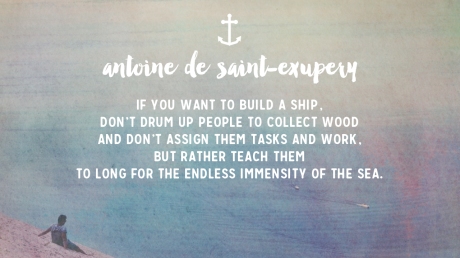This is part three of a series I’m writing with my good friend Jason Evans (Part one and part two).

Perhaps our culture’s strongest signifier that the holidays are upon us is the annual trampling of humans and merchandise that begins the day after Thanksgiving, Black Friday.1 While the spectacle of people camping out for a week to be the first in line for an oversized flatscreen television or shoving grandmas out of the way to snag a snack-retrieving drone2 still manages to elicit tongue-clucking editorials, it feels sadly appropriate for our consumer culture to ritualize the height of the consumer spending season3 in this way.
For Christians, Advent is an invitation to live an alternative story, one in which giving is better than receiving, where the unKing arrives amidst a violent empire as a vulnerable infant. Advent, not Black Friday or the ball dropping in Times Square, marks the beginning of our year.4
A Mechanic’s Guide
In 1991, Simple Machines published and sent out 10,000 copies of their Introductory Mechanic’s Guide to Putting out Records — a DIY how-to guide that explains the record manufacturing process in simple language. Originally, the guide was released as part of a larger booklet released in conjunction with Dischord and Positive Force DC (a DC-area activist group that works for social change and youth empowerment) called You Can Do It, which covered topics such as how to organize an activist group or put on a show.
The Mechanic’s Guide has been influential in a number of other ways, as described in the introduction:
This booklet is just a basic blueprint, and even though we write about putting out records or CDs, a lot of this is common sense. We know people who have used this kind of information to do everything from putting out a 7″ to starting an independent clothing label to opening recording studios, record stores, cafes, microbreweries, thrift shops, bookshops, and now thousands of start-up internet companies. Some friends have even used similar skills to organize political campaigns and rehabilitative vocational programs offering services to youth offenders in DC.
Discipleship, Movie Theaters, and Shopping Malls
In the Western church, we have become painfully dependent upon a spiritual hierarchy. We have professionalized the idea of ministry – with the amateurs sitting back passively and watching the ordained professionals “do ministry” for them. It has been grossly misused by paid ministers and has been the excuse of many to treat discipleship to Christ as a casual hobby.
In this scenario, one might picture church as a movie theater, where people purchase a ticket, sit back comfortably, watch the show, and then get on with the rest of their lives or church as a shopping mall, where shoppers survey the many purveyors of religious goods and services, expect and receive attentive customer service and then, again, get on with the rest of “real” lives.
Get Up, Get Into It, Get Involved5
Scripture paints a very different picture: rather than passively consuming religious goods and services, we are called to make, create, and participate. In 1 Peter 2, we are told that, as a people belonging to God, all of us are part of a “royal priesthood” — not only the religious professionals or those on the stage. Scripture urges us to do more than “go to church” but to be the church. As 1 Corinthians 12:27 shows us, “You are the body of Christ, and each one of you is a part of it.”
You don’t have to search hard to find talk, both within church circles and in the broader culture, about finding your calling or chasing your dreams. This provides a unique opportunity for the church to remind Christians of our primary calling as the beloved people of God in Christ, and our primary vocation to seek the Kingdom of God on earth as it is in heaven, as Jesus prayed. And, like early DIY punk scene, this challenges us to help the church live out our secondary callings in every sphere of life — everywhere we live, work, and play — and find a place for everyone to contribute so that the church becomes a dynamic, creative force for good in our local communities, rather than simply a destination to consume religious goods and services.
From Mass Produced to Artisan Crafted
From local craft microbrews and coffee roasters to artisans and makers, some in our culture have begun to shift from mass-production’s emphasis on efficient, scalable, and uniform to thoughtful, crafted, and unique. When the church calls everyone to participate in joining God’s mission of redemption, we may lose a bit of the slick, high-gloss sheen of big-budget productions, but we will gain much more — particularly in the unexpected joy of discovery as God’s dream for more of the church is awakened and unleashed.
_____________________
1. This day wears black on the outside, because black is how it feels on the inside.
2. Look, I don’t need a jetpack in my future — is it too much to ask Elon Musk to make a drone that will get me a Diet Coke from the fridge?
3. To the tune of almost $800 billion this year. Yikes, indeed.
4. Many Christian traditions recognize Advent as the beginning of new liturgical year.
5. We could use some more Soul Power, too.




